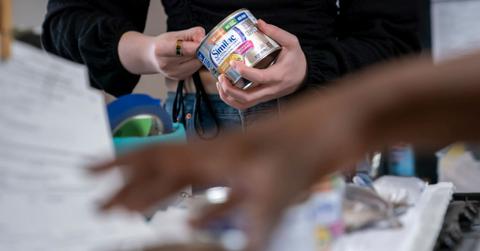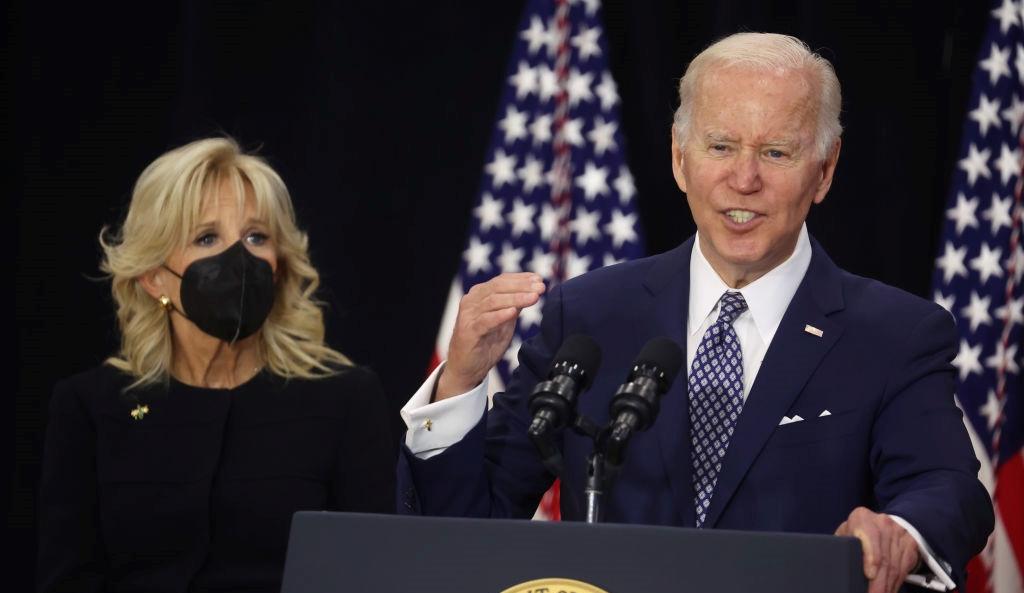Baby Formula Shortage Bill Echoes Pandemic-Era Import Measures
President Biden invoked the Defense Production Act to spur baby formula imports. Now, the administration wants to pass a spending bill to beef up inspections.
May 19 2022, Published 11:19 a.m. ET
President Joe Biden has officially invoked the Defense Production Act to spur baby formula imports and ease the ongoing shortage. Right now, 43 percent of the baby formula stock is off shelves due to a combination of supply chain constraints and recalls. This move could help parents and caretakers feed their babies safely despite restrictive domestic regulations.
Here’s what the Defense Production Act could do for the baby formula shortage and how an additional spending bill could beef up inspections.
What is the Defense Production Act?
Former President Harry S. Truman passed the Defense Production Act of 1950 during the Korean War. The federal law can be enacted during times of need and has been reauthorized more than 50 times since its inception.
According to the Congressional Research Service, “The authorities can be used across the federal government to shape the domestic industrial base so that, when called upon, it is capable of providing essential materials and goods needed for the national defense.”
In March 2020, Former President Donald Trump reauthorized the Defense Production Act to increase the availability of ventilators and personal protective equipment during the COVID-19 pandemic. Biden previously invoked the bill to increase the availability of fire hoses to fight the growing number of wildfires in the nation.
How Biden used executive action to expand baby formula imports.
On Wednesday, May 18, Biden invoked the Defense Production Act through executive action. The bill allows overseas baby formula ingredients to be imported to the U.S. and prioritizes baby formula manufacturing companies to receive those ingredients before anyone else. The bill will also allow overseas select instant baby formula products that have already been produced to be imported to the U.S. The Health and Human Services Department and Department of Agriculture will use aircraft services to pick up supplies quicker.
Usually, the FDA maintains restrictive regulations on baby formula, which is why there are only four major companies in the U.S. supplying the entire market. Multiple babies who were fed homemade baby formula as a result of the shortage have been hospitalized for hypocalcemia (a calcium deficiency). The imported products will still need to meet strict safety requirements to prevent dangerous situations like this as well as the two bacterial infection deaths that prompted the baby formula recall.
A $28 million spending bill is in the works to beef up baby formula inspections — who voted against it?
With only nine government officials employed to inspect incoming baby formula for safety, the House has passed a $28 million spending bill to beef up the team and ensure safe imports. Rep. Rosa DeLauro (D-Conn.) introduced the bill. DeLauro said about the baby formula shortage, “I’m looking at [Abbott Nutrition] who has put profit over people and it’s playing wrong. The company was aware of the failure and they attempted to hide that info from the FDA and the FDA just dragged their feet in making this public.”
However, 192 House Republicans voted against the spending bill, while 12 Republicans voted to pass it along with all House Democrats.


